|
Books Should Be Free Loyal Books Free Public Domain Audiobooks & eBook Downloads |
|
|
Books Should Be Free Loyal Books Free Public Domain Audiobooks & eBook Downloads |
|
Plays |
|---|
|
Book type:
Sort by:
View by:
|
By: William Shakespeare (1564-1616) | |
|---|---|
 Shakespearean Dialogues Collection
Shakespearean Dialogues Collection
This is a collection of scenes from Shakespeare's plays, mainly comprising dialogues between two characters. The theme for this collection is "Wooing, Wedding, and Repenting" (inspired by a line from Much Ado About Nothing). | |
By: Moliere (1622-1673) | |
|---|---|
 The Imaginary Invalid
The Imaginary Invalid
The Imaginary Invalid is a three-act comédie-ballet by the French playwright Molière. It was first performed in 1673 and was the last work he wrote. The plot centers around Argan, the 'imaginary invalid' who is completely dependent on his doctors and wants to marry his daughter to a doctor against her will, so that he will always have medical care freely available to him. In an ironic twist of fate, Molière collapsed during his fourth performance as Argan on 17 February and died soon after. | |
By: Molière (1622-1673) | |
|---|---|
 Miser
Miser
The Miser is a comedy of manners about a rich moneylender named Harpagon. His feisty children long to escape from his penny-pinching household and marry their respective lovers. Although the 17th-century French upper classes presumably objected to the play's message, it is less savage and somewhat less realistic than Molière's earlier play, Tartuffe, which attracted a storm of criticism on its first performance. | |
By: Thomas Middleton (1580-1627) | |
|---|---|
 Women Beware Women
Women Beware Women
Thomas Middleton's masterful 17th century tragedy is packed with adultery, incest, intrigue, revenge, and inventive methods for murder. Leantio elopes with Bianca against her family's wishes and tries to hide her in the house he shares with his widowed mother. Yet the Duke sees Bianca at the window and is powerfully attracted to her, threatening Leantio's security. Livia, a wealthy widow, delights in intrigue, aiding the Duke to satisfy his desires with Bianca, and bringing together her brother Hippolito with her niece Isabella, despite their familial relationship... | |
By: August Strindberg (1849-1912) | |
|---|---|
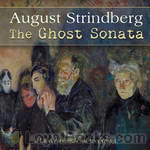 The Ghost Sonata
The Ghost Sonata
The Ghost Sonata (Spoksonaten) is a play in three acts by Swedish playwright August Strindberg. Written in 1907, it was first produced at Strindberg's Intimate Theatre in Stockholm on 21 January 1908... The Ghost Sonata is a key text in the development of modernist drama and a vivid example of a chamber play. In it, Strindberg creates a world in which ghosts walk in bright daylight, a beautiful woman is transformed into a mummy and lives in the closet, and the household cook sucks all the nourishment out of the food before she serves it to her masters... | |
By: Frank Wedekind | |
|---|---|
 The Awakening of Spring
The Awakening of Spring
The Awakening of Spring is the German dramatist Frank Wedekind's first major play and a seminal work in the modern history of theatre. It is the source material for the contemporary rock musical Spring Awakening. The play criticises the sexually-oppressive culture of fin de siècle Germany and offers a vivid dramatisation of the erotic fantasies that it breeds. Due to the nature of its content, the play has often been banned. | |
By: Aeschylus (c. 525 BCE - c. 456 BCE) | |
|---|---|
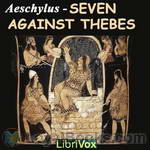 Seven Against Thebes
Seven Against Thebes
In this, the only extant tragedy from Aeschylus' trilogy about the House of Oedipus, Thebes is under siege from Polynices, a former prince of Thebes. After King Oedipus left his city and cursed the princes, Polynices and his brother, Eteocles, decided to rule alternately, switching at the end of every year. However, at the end of his year as king, Eteocles refused to turn power over to his brother and exiled him, fulfilling his father's curse that the two brothers could not rule peacefully. In the action of the play, Polynices and a group of Argive soldiers are attacking Thebes so that he can take his place as ruler... | |
By: Myrtle Reed (1874-1911) | |
|---|---|
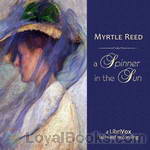 A Spinner in the Sun (dramatic reading)
A Spinner in the Sun (dramatic reading)
Myrtle Reed may always be depended upon to write a story in which poetry, charm, tenderness and humor are combined into a clever and entertaining book. Her characters are delightful and she always displays a quaint humor of expression and a quiet feeling of pathos which give a touch of active realism to all her writings. In "A Spinner in the Sun" she tells an old-fashioned love story, of a veiled lady who lives in solitude and whose features her neighbors have never seen. There is a mystery at the heart of the book that throws over it the glamour of romance. | |
By: Henry Fielding | |
|---|---|
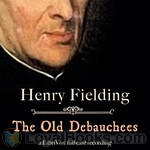 The Old Debauchees
The Old Debauchees
Young Laroon plans to marry Isabel, but Father Martin manipulates Isabel's father, Jourdain, in order to seduce Isabel. However, other characters, including both of the Laroons, try to manipulate Jourdain for their own ends; they accomplish it through disguising themselves as priests and using his guilt to convince him of what they say. As Father Martin pursues Isabel, she is clever enough to realize what is happening and plans her own trap. After catching him and exposing his lust, Father Martin is set to be punished. | |
By: Euripides (484 BC - 406 BC) | |
|---|---|
 Orestes
Orestes
In accordance with the advice of the god Apollo, Orestes has killed his mother Clytemnestra to avenge the death of his father Agamemnon at her hands. Despite Apollo’s earlier prophecy, Orestes finds himself tormented by Erinyes or Furies to the blood guilt stemming from his matricide. The only person capable of calming Orestes down from his madness is his sister Electra. To complicate matters further, a leading political faction of Argos wants to put Orestes to death for the murder. Orestes’ only hope to save his life lies in his uncle Menelaus, who has returned with Helen after spending ten years in Troy and several more years amassing wealth in Egypt... | |
By: Stanley Houghton (1881-1913) | |
|---|---|
 Hindle Wakes (with accompanying essay)
Hindle Wakes (with accompanying essay)
Alan Jeffcote, son of Nat Hawthorn, Hindle's richest factory owner, meets Fanny Hawthorn, daughter of Nat's 'slasher' and oldest friend, in Blackpool and the two go off for what they believe to be secret fling in Llandudno. But after the death of Fanny's friend, Mary, in a pleasure boat accident at Blackpool the secret is revealed and the the two families are thrown into disarray. The leading light of the so-called Manchester School of realist dramatists, Stanley Houghton wrote Hindle Wakes in 1911 and it was a hit both in Mrs... | |
By: John Fletcher (1579-1625) | |
|---|---|
 The Woman's Prize, or The Tamer Tamed
The Woman's Prize, or The Tamer Tamed
John Fletcher's comedy (probably written and performed around 1611) is a sequel to Shakespeare's The Taming of the Shrew, in which, as the title suggests, the tamer will be tamed. Petruchio, the shrew-tamer, has been widowed, and marries a second wife, Maria, a "chaste witty lady." At the instigation of her cousin Bianca, and with the fellowship of her sister Livia, Maria decides to go on strike for equal rights, refusing to behave as a proper 17th century wife. Fletcher's play addresses the issue of men and women's roles within marriage, a controversial issue for his day. | |
By: Aeschylus (c. 525/524-456/455 BC) | |
|---|---|
 Prometheus Bound (Buckley Translation)
Prometheus Bound (Buckley Translation)
"Prometheus Bound" is the only complete tragedy of the Prometheia trilogy, traditionally assumed to be the work of Aeschylus. Jupiter has turned against Prometheus for protecting mankind and has ordered him to be chained to a rock. But Prometheus is comforted by his knowledge of a way to bring about the downfall of Jupiter. | |
By: Aristophanes (446-389 BCE) | |
|---|---|
 Frogs
Frogs
Athens is in a sorry state of affairs. The great tragedian, Euripides, is dead, and Dionysus, the god of the theater, has to listen to third-rate poetry. So, he determines to pack his belongings onto his trusty slave, Xanthias, and journey to the underworld to bring back Euripides! Hi-jinks ensue. | |
By: Nahum Tate (1652-1715) | |
|---|---|
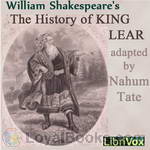 The History of King Lear
The History of King Lear
The History of King Lear is an adaptation by Nahum Tate of William Shakespeare's King Lear. It first appeared in 1681, some seventy-five years after Shakespeare's version, and is believed to have replaced Shakespeare's version on the English stage in whole or in part until 1838. Unlike Shakespeare's tragedy, Tate's play has a happy ending, with Lear regaining his throne, Cordelia marrying Edgar, and Edgar joyfully declaring that "truth and virtue shall at last succeed." Regarded as a tragicomedy, the play has five acts, as does Shakespeare's, although the number of scenes is different, and the text is about eight hundred lines shorter than Shakespeare's... | |
By: Gordon Bottomley (1874-1948) | |
|---|---|
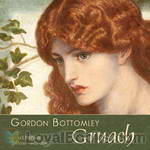 Gruach
Gruach
Gordon Bottomley's verse drama in two scenes is a prequel to Shakespeare's Macbeth. He provides Lady Macbeth with a name - Gruach - and imagines her family life and how she meets Macbeth. | |
By: William Shakespeare (1554-1616) | |
|---|---|
 Two Noble Kinsmen
Two Noble Kinsmen
The Two Noble Kinsmen is a Jacobean tragicomedy co-written by William Shakespeare and John Fletcher, first published in 1634. Set in ancient Greece during a war between Athens and Thebes, the narrative follows the title characters, Palamon and Arcite, noble youths whose friendship is destroyed by their mutual love for the beautiful Emilia. The subplot deals with the love and eventual madness of the Gaoler's Daughter, who falls hopelessly in love with Palamon. The play is based on "The Knight's Tale" by Chaucer, but also has echoes of Shakespeare's A Midsummer Night's Dream, as two of the major characters are Theseus and Hippolyta, who also appear in the earlier play. | |
 Reign of King Edward the Third
Reign of King Edward the Third
| |
By: George Calderon (1868-1915) | |
|---|---|
 Cinderella
Cinderella
If you are expecting glass slippers and pumpkin coaches, look elsewhere... This is "a pantomime as Ibsen would have written it, if only it had occurred to him to write one." Set on a "bleak and cheerless heath overlooking the fjord" we meet Ibsenesque heroine Mrs. Inquest, her step-daughter Hilda, and her daughter Hedda, who is engaged to be married to the unfortunate Tesman. Thus begins Calderon's hilarious Ibsenesque version of Cinderella. NOTE from the editor of the volume, published in 1922 after Calderon's death: This play is hardly more than a rough draft, written when the idea was fresh and put aside to be worked on when the right moment should come... | |
By: Henrik Ibsen (1828-1906) | |
|---|---|
 Peer Gynt
Peer Gynt
Peer is a dreamer, liar, excellent storyteller and an irresponsible person who avoids all problems. He uses and discards women and looks towards the grandiose, the unattainable. Despite of this, one can't help but like and feel sorry for Peer, as it is easy to recognize something of yourself in him. Peer Gynt is the most well known Norwegian play throughout history and is based loosely on the folklore about Per Gynt. It is a dramatic poem in five acts, and has been aptly described as the story of a life based on procrastination and avoidance. The play is said to be a confrontation with the flock mentality Ibsen meant to recognize the typical Norwegian. | |
By: Johann Wolfgang von Goethe (1749-1832) | |
|---|---|
 Faust II
Faust II
Faust is the protagonist of a classic German legend; a highly successful scholar, but also dissatisfied with his life, and so makes a deal with the devil, exchanging his soul for unlimited knowledge and worldly pleasures. Johann Wolfgang von Goethe's Faust is a tragic play in two parts. It is Goethe's most famous work and considered by many to be one of the greatest works of German literature. Rich in classical allusion, in Part Two the romantic story of the first Faust is forgotten, and Faust wakes in a field of fairies to initiate a new cycle of adventures and purpose... | |
By: Allan Monkhouse (1858-1936) | |
|---|---|
 Mary Broome
Mary Broome
Before Downton Abbey, there was Mary Broome. In Allan Monkhouse's 1911 satire, when the son of a middle-class household gets their housemaid pregnant, the two families must try to combine their very different values. | |
By: William Shakespeare (1554-1616) | |
|---|---|
 As You Like It (version 2)
As You Like It (version 2)
Shakespeare's pastoral comedy was written and first performed around 1599, and presents some of his familiar motifs: a cross-dressing heroine, a wise-cracking fool, brothers usurping their brothers' power, a journey from the court to the country, and various romantic entanglements. | |
By: George Bernard Shaw (1856-1950) | |
|---|---|
 Widowers' Houses
Widowers' Houses
This is one of three plays Shaw published as Plays Unpleasant in 1898; they were termed "unpleasant" because they were intended, not to entertain their audiences—as traditional Victorian theatre was expected to—but to raise awareness of social problems and to censure exploitation of the laboring class by the unproductive rich. In this play, Dr. Harry Trench becomes disillusioned when he discovers how his fiancee's father, Mr. Sartorius, makes his money. However, it is soon revealed that Trench's own income is far from untainted. | |
By: John Millington Synge (1871-1909) | |
|---|---|
 Tinker's Wedding
Tinker's Wedding
The Tinker's Wedding is a two-act play written by Irish playwright J. M. Synge. The author's only comedy, it is set on a roadside near a chapel in rural Ireland. | |
By: August Strindberg (1849-1912) | |
|---|---|
 Dance of Death
Dance of Death
The Dance of Death is a play in two parts by the Swedish dramatist August Strindberg, written in 1900. It depicts the dissolution of a marriage between Edgar, an artillery captain, and Alice, a former actress. Increasingly isolated in their fort-like house, they manipulate and bait each other, until the unexpected arrival of Curt, Alice's cousin. His presence creates a tense triangular relationship that escalates throughout Part One, and is complicated with the introduction of two of the trio's children, Allan and Judith, in Part Two. | |
By: W. S. Gilbert (1836-1911) | |
|---|---|
 Sweethearts
Sweethearts
Sweethearts is a comic play billed as a "dramatic contrast" in two acts by W. S. Gilbert. The play tells a sentimental and ironic story of the differing recollections of a man and a woman about their last meeting together before being separated and reunited after 30 years. | |
By: Elizabeth Cary (1585-1639) | |
|---|---|
 Tragedy of Mariam
Tragedy of Mariam
The Tragedy of Mariam (1613) is the first original drama written in English by a woman. Elizabeth Cary drew on Jewish histories by Josephus to create a closet drama (written to be read, rather than performed live) about Mariam, the second wife of Herod the Great. At the beginning of the play, Mariam believes that Herod has been killed by Octavius, and struggles with how to respond. On the one hand, she is relieved, as she is angry with Herod for killing her brother and grandfather. On the other, she knows that he loved her, and she feels caught by her sense of duty as his wife. When Herod unexpectedly returns, Mariam must decide what to do. | |
By: Edmund John Eyre (1767-1816) | |
|---|---|
 Lady of the Lake
Lady of the Lake
At the request of Mr. Siddons, Manager and Patentee of the Theatre Royal, Edinburgh, the following Performance was composed. I am very sensible that Mr. Scott’s Poem of “The Lady of the Lake” afforded material for a much superior Drama than the one here presented to the public; but as Mr. Siddons, in all his correspondence with me on the subject, urged expedition, I was more attentive to the interest of a Friend than to the fame of an Author; and the whole piece was arranged, written, and copied in the short space of ten days... | |
By: Various | |
|---|---|
 Benjamin Britten: Source Stories of Twelve Operas
Benjamin Britten: Source Stories of Twelve Operas
Britten's operas are firmly established in the international repertoire: according to Operabase, they are performed worldwide more than those of any other composer born in the 20th century, and only Puccini and Richard Strauss come ahead of him if the list is extended to all operas composed after 1900. Britten went to various sources for his stories from the Bible to Japanese noh plays. This is a collection of twelve of the source stories. All but one are the original texts; the one exception is A Midsummer Night’s Dream which the reader took from Charles Lamb’s telling of the story. Some operas are omitted because no public domain texts could be found for their sources. | |
By: Rachel Crothers (1878-1958) | |
|---|---|
 Man's World
Man's World
The mysterious Frank Ware is a woman writer forced to write under a masculine pseudonym in order to win literary respect. Adding to her enigmatic status is the fact that she lives in New York City with her adopted child, a little son of unknown parentage, mystifying her friends by spending all her spare time in the least savory parts of the City, trying to rescue prostitutes from their hard lives. Eventually, even her closest bohemian and artistic companions begin to ask awkward questions, driving her to difficult, life-changing revelations... | |
By: Various | |
|---|---|
 One-Act Play Collection 005
One-Act Play Collection 005
This collection of ten one-act dramas features plays by James M. Barrie, Hereward Carrington, Marjorie Benton Cooke, Alice Gerstenberg, Susan Glaspell and George Cram Cook, St. John Hankin, George Middleton, David Pinski, Frederik Pohl, and an unknown Japanese author. The plays were coordinated by Arielle Lipshaw, Availle, Chuck Williamson, Todd, Peter Yearsley, Caprisha Page, Charlotte Duckett, and Amanda Friday. | |